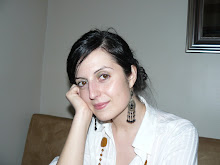"True wisdom is less presuming than folly. The wise man doubteth often, and changeth his mind; the fool is obstinate, and doubteth not; he knoweth all things but his own ignorance.
AkhenatonAkhenaton was Egypt’s "heretic pharaoh" and husband of beautiful queen Nefertiti. He was thus called because he rejected Egypt’s belief in numerous traditional gods and instituted history’s first monotheistic religion. He worshipped the sun disk as the only true god.
Robert J. Sternberg said that " the recognition that total understanding will always elude us is itself a sign of wisdom".
Patricia Kennedy Arlin suggests that wisdom is a function not of the answers one reaches but of the questions one poses.
According to Plato there are three kinds of wisdom:
"There is wisdom as sophia, the special gift of the philosopher and of those in general who have devoted themselves to a contemplative life in pursuit of truth. There is wisdom as phronesis, the ´practical wisdom´ of the statesman and lawgiver, the wisdom that locates the prudent course of action and resists the urgings of the passions and the deceptions of the senses. And there is wisdom as apisteme, a form of scientific knowledge developed in those who know the nature of things and the principles governing their behavior."
In Plato’s view wise men may be illiterate and unwise (ignorant) men may be "versed in calculation, and skilled in all sorts of accomplishments, and feats of mental dexterity".
"The two classes are separated by a difference in character, by a principle of self-control, by their ability to subordinate passion and desire to the authority of reason. To be wise is not, therefore, to possess a high IQ or to be a chess master or a theoretical physicist. It is to be a certain kind of person, temperamentally and morally won over to a love of harmony, beauty and truth."
"The wisdom-loving person – the philo-sophia – is one who searches for the timeless and unchanging truths, never content with the shifting phenomena of the material world."
According to Epicurus "The wise man comes to grips with his mortality and recognizes that the prudent life is one that will spare him such pain as might reasonably be avoided. What is to be sought is a secure serenity. By removing oneself from the arenas of competition and envy and by disciplining one’s wants and needs, it is possible to minimize suffering. Wisdom is knowing how to achieve this end. The serenity is not one of indifference but one yielded by self-control and prudenceThese are just a few thoughts and ideas that I am challenging you, my faithfull readers, with. I am looking forward to your opinions and I truly hope that you will find this to be an interesting subject.


No hay comentarios:
Publicar un comentario